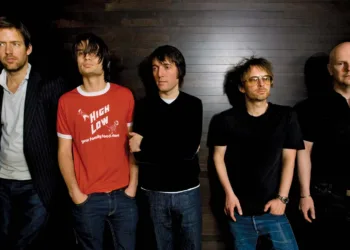With the chaos of the 36-team league phase behind us, we analyze the data to determine if the new Champions League format has been a success.
After 36 teams competed in 144 matches over four months, the league phase of the revamped Champions League wrapped up with a flurry of goals on Wednesday.

This new format marks a significant shift from the past 20 years, featuring a massive 36-team league table, two extra fixtures for each club, and teams now facing eight different opponents.
The experience has been both thrilling and overwhelming, with the final matchday highlighting the chaos. A total of 64 goals were scored across 18 simultaneous matches, the second-highest single-day total in European Cup history, just behind the 66 goals recorded on 16 September 1970.
But does more always mean better?
With the dust now settled, let’s take a closer look at UEFA’s key promises for the new format and see if they lived up to expectations.
Table of Contents
The Impact on Competitive Balance
Let’s begin with UEFA’s main promise: that the new format would enhance “competitive balance” by ensuring teams face opponents of a “similar level.” While it’s true that each club played against two teams from their own draw pot, they were also matched up against opponents from every other pot.
However, increasing the number of teams also diluted the overall quality of the competition.
This was evident in a few lopsided matches. Bayern Munich and Borussia Dortmund, both from Pot One, defeated Pot Three teams Dinamo Zagreb and Celtic with scorelines of 9-2 and 7-1, respectively. Other Pot One teams, such as Manchester City (5-0 vs Sparta Prague) and Barcelona (5-0 vs Young Boys), also enjoyed dominant victories against lower-seeded opponents.

In total, 42 matches were decided by a margin of 3 or more goals during the league phase of this season’s Champions League, surpassing any previous group stage. The next highest was 30 such matches in the 2022-23 group stage.
While the increase in games naturally leads to more chances for high-scoring victories, the rate of three-goal-plus wins (one every 3.4 games) was the highest since the single-group stage format was introduced in 2003-04.
Another trend highlighting the imbalance of the league phase was the low number of draws. With only 18 draws out of 144 games, this marked the lowest percentage in any European group stage since 2000-01.

Taking both trends into account, the average margin of victory in this season’s league phase was 1.91 goals. This represents an 18.8% increase compared to the historical average for group stages since 2003-04. Even if we exclude the 2000s, a period dominated by low-scoring matches, this still marks a 13.6% increase from group-stage games since 2010-11.
While there were some individual upsets, the teams that qualified largely followed expected patterns. Of the top 24 teams in the Opta Power Rankings entering the tournament, only five failed to make it through. The biggest surprise was RB Leipzig, ranked 11th pre-tournament, finishing in 32nd place.
The six lowest-ranked teams in the Opta Power Rankings—Slovan Bratislava, Young Boys, Shakhtar Donetsk, Crvena zvezda, Dinamo Zagreb, and Sturm Graz—were all eliminated in the group stages, as were seven of the lowest nine, with Salzburg also among them.
Overall, it’s difficult to claim that competitive balance has improved. In fact, the gap between the elite teams and the rest seems to have grown wider.
‘Every Game Counts’ – Or Does It?
UEFA also touted that the new format would make every match crucial to a team’s final standing, claiming “every game counts.”
On one hand, only two games on Matchday 8 were true dead rubbers: Young Boys (36th) vs Crvena zvezda (32nd) and Sturm Graz (33rd) vs RB Leipzig (30th). Every other team had something to play for, even if it was just positioning. Taken in isolation, this is a clear selling point for the format.
However, on the other hand, nine teams had already been eliminated before the final matchday, with Shakhtar Donetsk realistically out of contention as they needed to beat Dortmund and rely on an unlikely five-goal swing to qualify.
With 24 of the 36 teams advancing, genuine jeopardy was rare. Manchester City’s qualification journey added some drama, as did Stuttgart’s fight for a spot. But ultimately, City advanced comfortably despite a poor league phase that saw three defeats in four games. All they needed was a final-day win over Club Brugge to secure their place.
Their three victories came against lower-ranked teams: Sparta Prague (35th), Slovan Bratislava (31st), and Club Brugge (24th). That was enough to see them through.
City were one of five teams to qualify despite winning fewer than half of their league-phase matches, alongside Juventus, Celtic, Sporting CP, and Club Brugge. With so many teams advancing, the threshold for progression naturally lowers, which can diminish the significance of individual games.
However, this isn’t a new problem. Even in the old format, group-stage walks were common.
Since 2003-04, when the format shifted to a 16-team knockout round instead of a second group stage, 52 sides progressed to the last 16 with fewer than half their group-stage wins—an average of two per season. This year, there were five.
It’s also rare for a team of Manchester City’s caliber to find themselves in this situation. Since 2003-04, only 10 previous Champions League winners have qualified for the knockout stages with fewer than half their group-stage victories.
While City may face a tough opponent like Bayern or Real Madrid in the next round due to their lower seeding, this is more a result of those teams underperforming rather than a flaw in the system itself.
A ‘New Variety’ of Opponents
The expanded format brought fresh matchups, with teams like Aston Villa, Bologna, Brest, Girona, and Slovan Bratislava all making their Champions League debuts. Additionally, with each team facing eight unique opponents instead of the usual home-and-away fixtures, we witnessed an unprecedented level of variety.
In fact, 98 of the 144 fixtures (68%) this season were first-time encounters in the Champions League, a significant jump from the previous record of 71 (45.2%) set across the entire 1999-00 season, not just the group stages.

The new format undoubtedly introduced fresh matchups and increased the frequency of high-profile clashes earlier in the tournament. While it succeeded in delivering variety and high-scoring drama, it has arguably widened the competitive gap and reduced the significance of individual matches.
It remains to be seen how negative the impact will be for teams finishing between ninth and 24th, who will now play two additional games before reaching the last 16—on top of the two extra games they had to play in the group stage. There’s a case to be made that these extra fixtures could affect players’ performances in the later stages of the tournament, which would increase the value of finishing in the top eight. This could lead to higher stakes in future league phases.
Overall, despite adding four more teams and 48 extra fixtures, only 12 clubs have been eliminated from the competition so far, with another 16 games to be played before reaching the last 16.
As we’ve mentioned, more of something isn’t always better.
FAQs
How does the new Champions League format affect competitive balance?
The new format has expanded the league phase, but while it increased the number of teams and matchups, it has also widened the gap between elite and lower-ranked teams.
Did the Champions League’s new format deliver more variety in matchups?
Yes, the expanded format introduced fresh encounters, with 68% of this season’s games being first-time meetings, surpassing previous records for variety.
Has the new Champions League format increased match drama and excitement?
The new format led to high-scoring games and more thrilling encounters, especially on the final matchday, but it also resulted in more one-sided results.
Does the new Champions League format make every game count?
While UEFA promised that every match would have a significant impact, the reality showed that many teams were already eliminated before the final matchday, reducing the jeopardy for some teams
How has the increase in fixtures affected Champions League teams?
The additional games have led to more competition, but they could also impact player performance, making top-eight finishes more crucial and potentially increasing future stakes.







